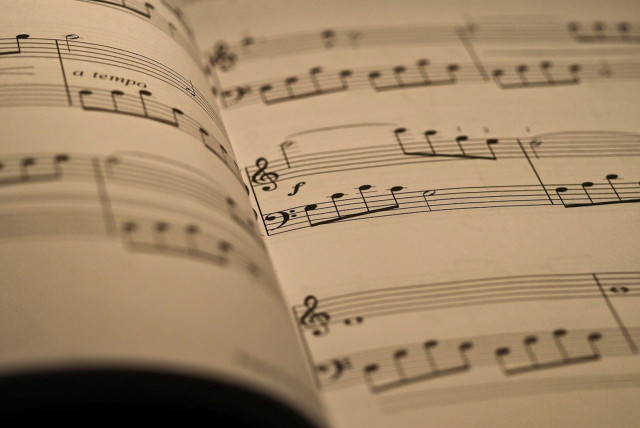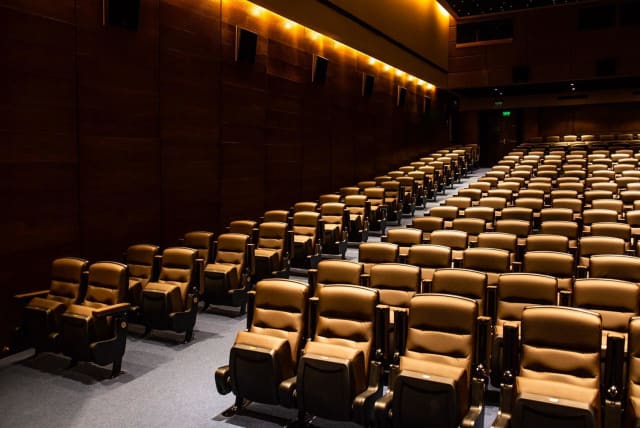On the final evening of 2024, the Jerusalem Baroque Orchestra, under the baton of its founder and artistic director, Prof. David Shemer, will present a deeply evocative concert titled Kedusha (“Sanctity”). This performance promises a profound exploration of Jewish musical traditions from 17th- and 18th-century Europe, uncovering a hidden world of melodies and drawing a bridge between Jewish liturgical music and the flourishing Baroque style of the era.
At the heart of this musical journey is soprano Naomi Burla Levy, whose artistry and connection to her heritage bring a rare emotional depth to the program. At just 25 years old, Burla Levy is already recognized as a rising star in the world of early music, her voice resonating with authenticity and warmth, her technique precise and captivating.
“For me,” she confides to The Jerusalem Post before the concert, “Kedusha is not merely a concert but a deeply personal journey that intertwines my roots with my passion for Baroque music.”
Jewish liturgical and European Baroque musical traditions at the Kedusha program
The Kedusha program delves into the unique interplay between Jewish liturgical traditions and the European Baroque musical language. Drawing from diverse sources – archives of the Portuguese Jewish community in Amsterdam, manuscripts preserved in Italian centers like Casale Monferrato and Mantua – the concert illuminates a fascinating chapter of cultural exchange.
These compositions illustrate how Jewish communities, while maintaining the spirit of their liturgical practice, engaged with their surrounding cultures, commissioning works from non-Jewish composers who set sacred Hebrew texts to music.

“This isn’t just music; it’s a rediscovery of identity and dialogue,” Burla Levy reflects. “Singing these melodies in Hebrew, as originally conceived, creates a profound connection for both the performers and the audience. It’s a rare opportunity to immerse ourselves in a world where cultural boundaries were bridged through artistry.”
The evening’s repertoire features pieces that have survived intact alongside works with more modern arrangements, carefully crafted from fragmentary manuscripts.
Prof. Shemer, a leading figure in the revival of early music, has meticulously curated the program, ensuring that each piece retains its historical integrity while resonating with contemporary audiences.
“Our goal,” he explains, “is to breathe life into these works while honoring their origins. This concert is as much about revival as it is about celebration.”
For Burla Levy, who grew up in a Ladino-speaking household, Kedusha represents a beautiful convergence of her personal and professional worlds.
A graduate of the Israel Conservatory of Music and the Buchmann-Mehta School of Music, she has already performed with some of Israel’s leading ensembles, including the Ra’anana Symphonette Orchestra and the Israel Chamber Orchestra. As a member of the Lilach Baroque Ensemble, she continues to solidify her reputation in early music circles.
“Baroque music challenges me in ways few other styles can,” she shares. “It demands both intellectual engagement and emotional depth. Singing in Hebrew, with texts so rooted in my heritage, brings a sense of fulfillment that’s hard to articulate.”
Adding another layer of personal significance, the concert marks a poignant moment in Burla Levy’s artistic journey as she shares the stage with Noam Schuss, the orchestra’s principal violinist and her childhood violin teacher.
“The Jerusalem Baroque Orchestra feels like family,” she remarks. “It’s a collaborative ensemble where every musician contributes to a shared vision.”
Prof. Shemer, a pioneer of Israel’s early music scene, has long championed historical authenticity. Since founding the Jerusalem Baroque Orchestra in 1989, he has led its exploration of lesser-known repertoire, earning international recognition for his efforts. His work extends beyond the concert hall, encompassing acclaimed recordings like Bach’s Goldberg Variations and invitations to prestigious festivals such as the Bach Festival in Eisenach, Germany.
With Kedusha, Shemer continues his mission to illuminate the intersections of Jewish and European musical traditions. “This program is a testament to the resilience and creativity of Jewish communities,” he notes. “It reveals a chapter of history where music became a bridge between sacred tradition and artistic innovation.”
For Burla Levy, Kedusha is not only a milestone but also a stepping stone toward a meaningful career in Israel. “While many musicians seek opportunities abroad, I’m committed to contributing to the cultural landscape here,” she affirms. “There’s immense potential for connection and growth through music in this country.”
As the final notes of 2024 echo through the Jerusalem International YMCA, Kedusha will stand as a tribute to the enduring power of music to transcend time and bring cultures together, a testament to the vibrant legacy of Jewish music within the Baroque world.
December 31, 2024, at 8:00 p.m., YMCA, Jerusalem.





































































































